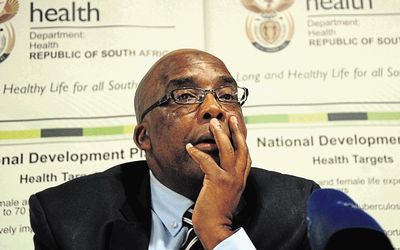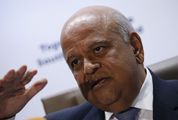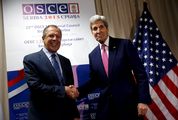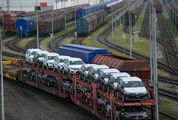THE Democratic Alliance (DA) on Sunday panned the government’s estimated costs for National Health Insurance, describing figures in the White Paper released for public comment on Friday as little more than a "thumbsuck".
The National Health Insurance is an ambitious plan that promises universal health coverage free at the point of delivery. One of the biggest questions is how it will be funded, especially now that the Treasury is in disarray after last week’s sacking of Nhlanhla Nene as finance minister and former minister Pravin Gordhan’s return on Sunday night.
"There is no evidence in the White Paper of Treasury’s assessment of the costs; there’s just a projection based on 2010 prices," said the DA’s health spokesman, Wilmot James.
Those figures presented the nation with the second-biggest fiscal risk after nuclear energy, he said. The DA would ask for the full details of the Treasury’s costing work.
The government provided an outline of its plans in a Green Paper on National Health Insurance in 2011, promising more detail in a White Paper. Two documents were expected: a health policy from the Department of Health and a discussion paper on financing options from the Treasury, but at the last minute, the Cabinet told the two departments to merge their work.
Noticeably absent from Health Minister Aaron Motsoaledi’s media briefing on Friday was any representation from the Treasury.
While the White Paper says costs are difficult to gauge because the benefits patients will get have yet to be defined, it says National Health Insurance costs in 2025 would be R256bn in 2010 terms. This figure is a 2012 projection by the Treasury, it says in a footnote, and assumes health expenditure would grow an average of 6.7% a year.
Depending on how much the baseline health budget rises, this would create a shortfall of R28bn-R108bn. Both papers assume gross domestic product (GDP) to grow at a 3.5% rate.
Econex economist Mariné Erasmus also questioned the white paper’s costing. "We are very surprised that it contains the same financing numbers as the green paper…. There are no changes to the GDP forecasts, and … nothing further has been done on modelling its costs."

Health Minister Aaron Motsoaledi. Picture: THE SOWETAN
THE Democratic Alliance (DA) on Sunday panned the government’s estimated costs for National Health Insurance, describing figures in the White Paper released for public comment on Friday as little more than a "thumbsuck".
The National Health Insurance is an ambitious plan that promises universal health coverage free at the point of delivery. One of the biggest questions is how it will be funded, especially now that the Treasury is in disarray after last week’s sacking of Nhlanhla Nene as finance minister and former minister Pravin Gordhan’s return on Sunday night.
"There is no evidence in the White Paper of Treasury’s assessment of the costs; there’s just a projection based on 2010 prices," said the DA’s health spokesman, Wilmot James.
Those figures presented the nation with the second-biggest fiscal risk after nuclear energy, he said. The DA would ask for the full details of the Treasury’s costing work.
The government provided an outline of its plans in a Green Paper on National Health Insurance in 2011, promising more detail in a White Paper. Two documents were expected: a health policy from the Department of Health and a discussion paper on financing options from the Treasury, but at the last minute, the Cabinet told the two departments to merge their work.
Noticeably absent from Health Minister Aaron Motsoaledi’s media briefing on Friday was any representation from the Treasury.
While the White Paper says costs are difficult to gauge because the benefits patients will get have yet to be defined, it says National Health Insurance costs in 2025 would be R256bn in 2010 terms. This figure is a 2012 projection by the Treasury, it says in a footnote, and assumes health expenditure would grow an average of 6.7% a year.
Depending on how much the baseline health budget rises, this would create a shortfall of R28bn-R108bn. Both papers assume gross domestic product (GDP) to grow at a 3.5% rate.
Econex economist Mariné Erasmus also questioned the white paper’s costing. "We are very surprised that it contains the same financing numbers as the green paper…. There are no changes to the GDP forecasts, and … nothing further has been done on modelling its costs."






















Change: 0.41%
Change: 0.38%
Change: 0.99%
Change: 0.40%
Change: -0.76%
Data supplied by Profile Data
Change: 1.81%
Change: 0.60%
Change: 0.41%
Change: 0.00%
Change: 0.48%
Data supplied by Profile Data
Change: -0.80%
Change: -0.72%
Change: -0.72%
Change: -0.96%
Change: -0.76%
Data supplied by Profile Data
Change: 0.25%
Change: 0.67%
Change: 0.29%
Change: 1.29%
Change: 2.04%
Data supplied by Profile Data